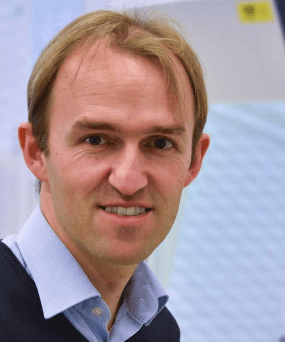- Homepage
- Programme
- Registration
- Practical Guide
- About Neuronus

Ludwig Maximilian University Of Munich, Germany

Molecular human brain research heavily depends on model systems recapitulating key aspects of brain physiology and disease pathology. Most current knowledge about mechanisms organising brain function and dysfunction comes from primary or immortalized cell cultures, as well as rodent models, especially mice. However, these models have drawbacks, including species differences and incomplete phenotypes, impeding research on impactful neurodegenerative and neurovascular disorders. Furthermore, it is also conceivable that shortcomings of current models contribute to failures of model-tested drugs in clinical trials. Human models derived from induced pluripotent stem cells (iPSCs) have great potential to complement existing disease models, as they allow directly studying affected human cell types, have the genetic configuration of patients and display crucial cell biological features also found in human brain. In addition, recent development in genome editing using the CRISPR/Cas system have revolutionized the way we can study our genome and reveal the impact of genetic alterations on disease formation. In principle, the combination of genome editing with iPSC technology allows studying most genetic alterations in most cell types of our body, yielding a highly versatile system for disease research. The work in my lab focusses on advancing these technologies to generate a new generation of iPSC-based disease models for human brain diseases, such as Alzheimer’s disease (AD) and stroke, with 3 major aims:
(1) We have improved CRISPR editing in many ways to increase specificity, efficiency and reliability of genome editing in iPSCs. In our most recent work, we describe the widespread occurrence of deleterious on-target effects after CRISPR editing in iPSCs and show how these can negatively affect formation of disease phenotypes. We developed simple and broadly accessible technologies to detect these OnTEs, which will help the field to identify and remove erroneous cell lines from research projects, and thus lead to more faithful disease modelling in iPSC-based models.
(2) We are optimizing iPSC differentiation protocols to generate highly pure, homogeneous and well- characterized cultures of major disease-relevant human brain cell types, including cortical neurons, astrocytes, oligodendrocytes, microglia, endothelial cells, smooth muscle cells and pericytes. Based on these cells, we are developing 3D co-culture and tissue engineering technology of these brain cells, to generate self-organizing brain-like tissues with typical cell biological features.
(3) Combining these two approaches we generate genetic disease models of AD and stroke by introducing disease-causing mutations/risk SNPs etc. with our efficient CRISPR platform, to accelerate naturally occurring disease processes and promote pathology.
In my talk, I will present our recent progress in these research areas. We expect that our models will form the basis for studies elucidating novel, potentially human-specific pathomechanisms and provide a human framework for translational and screening approaches.